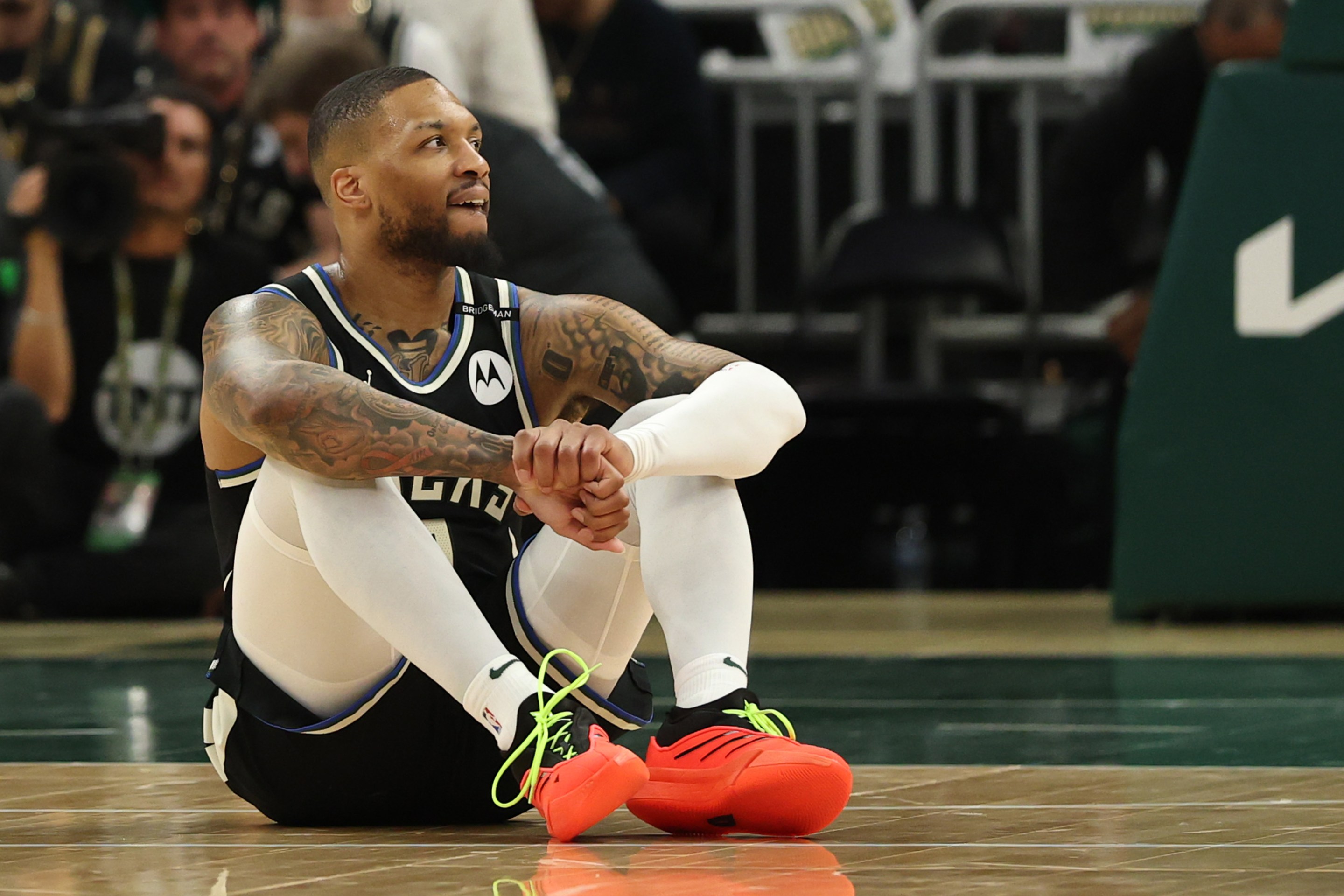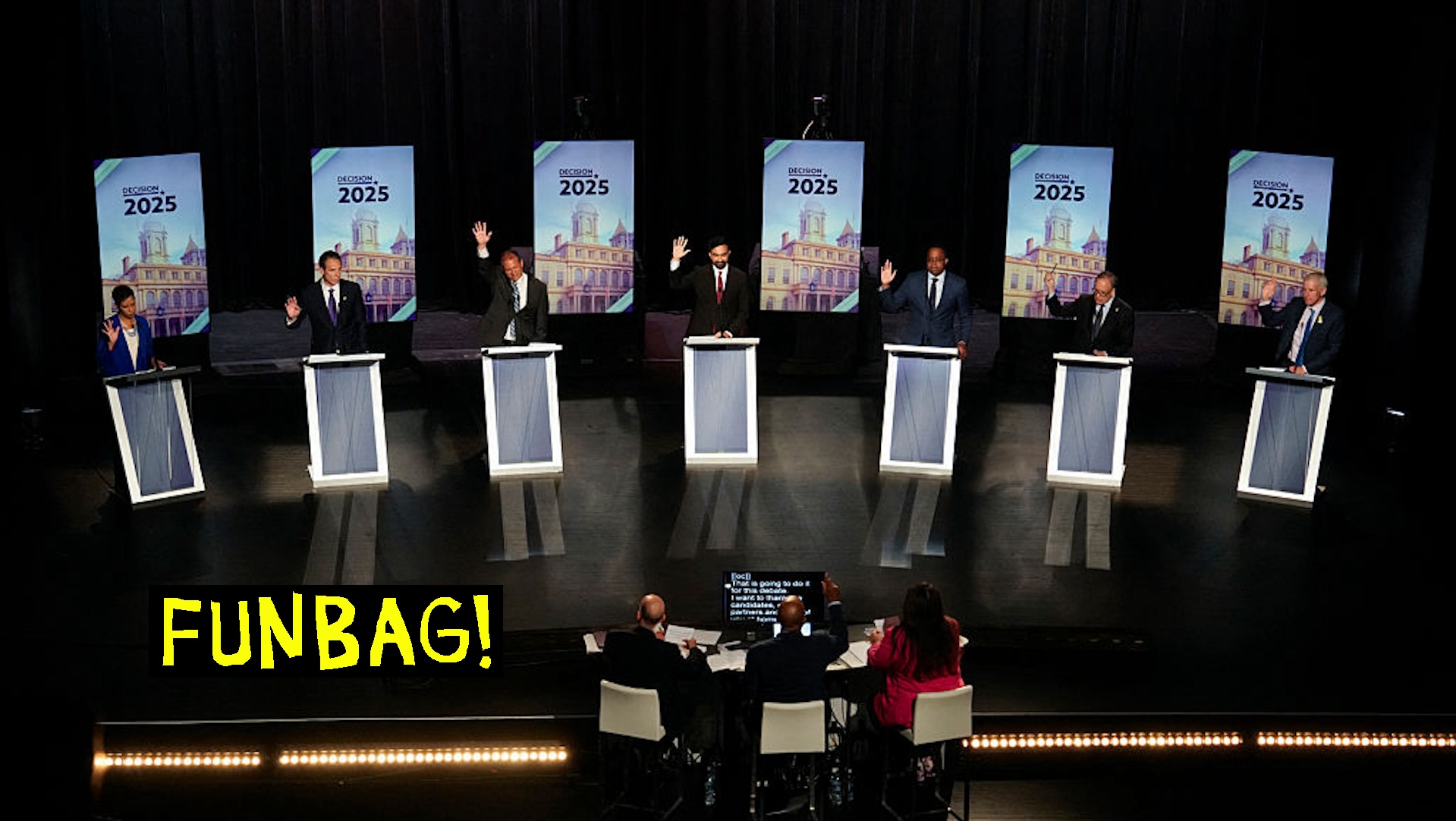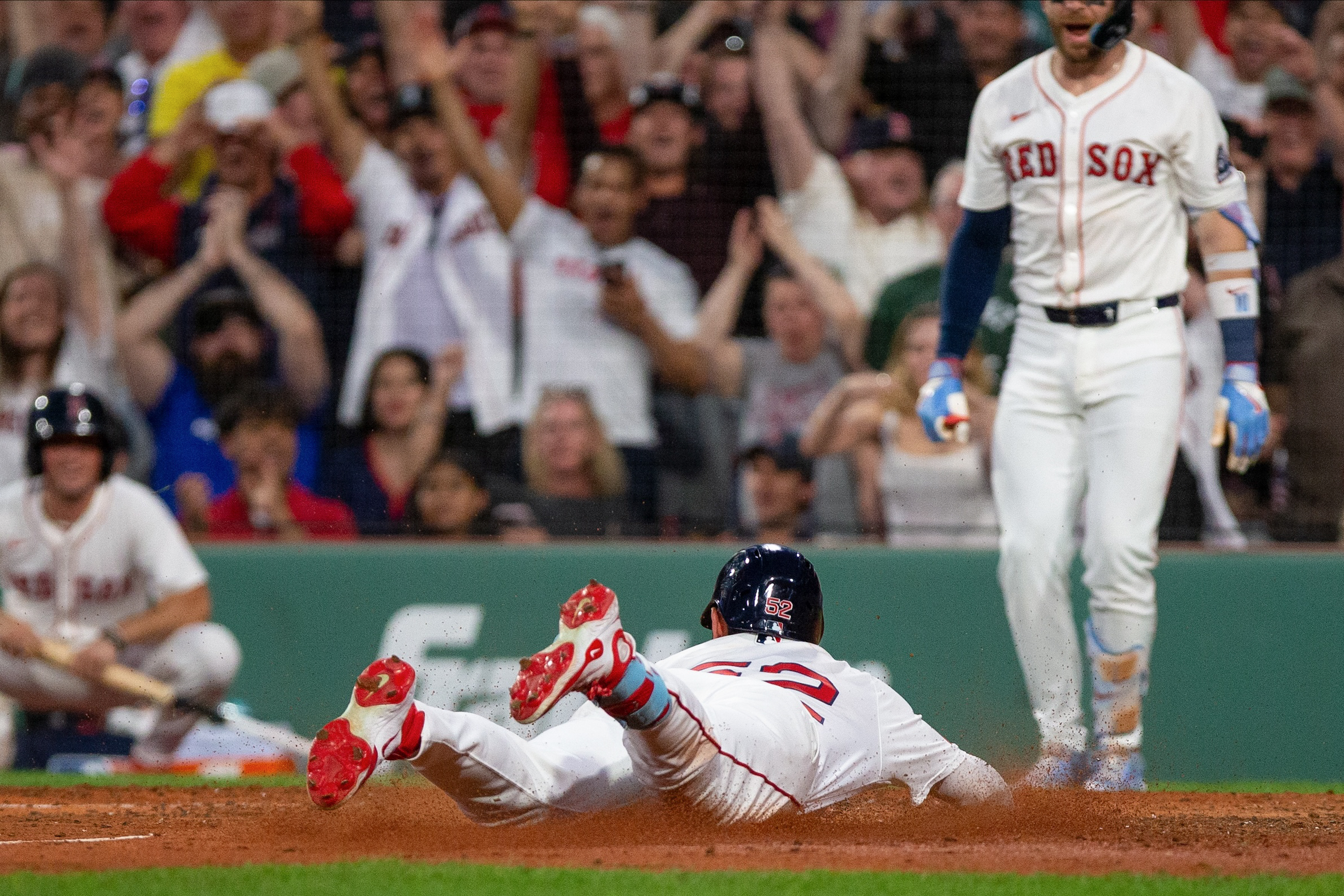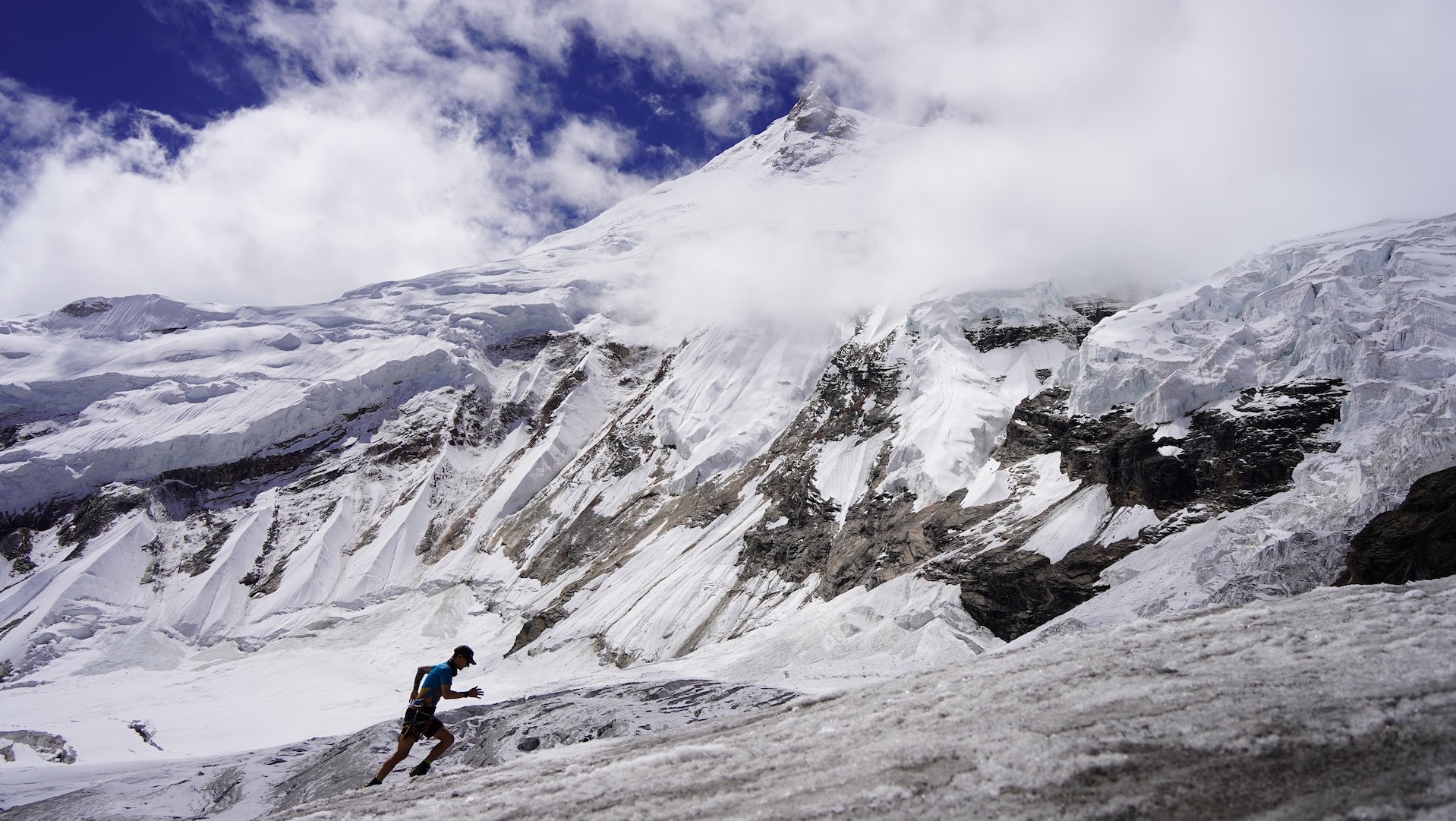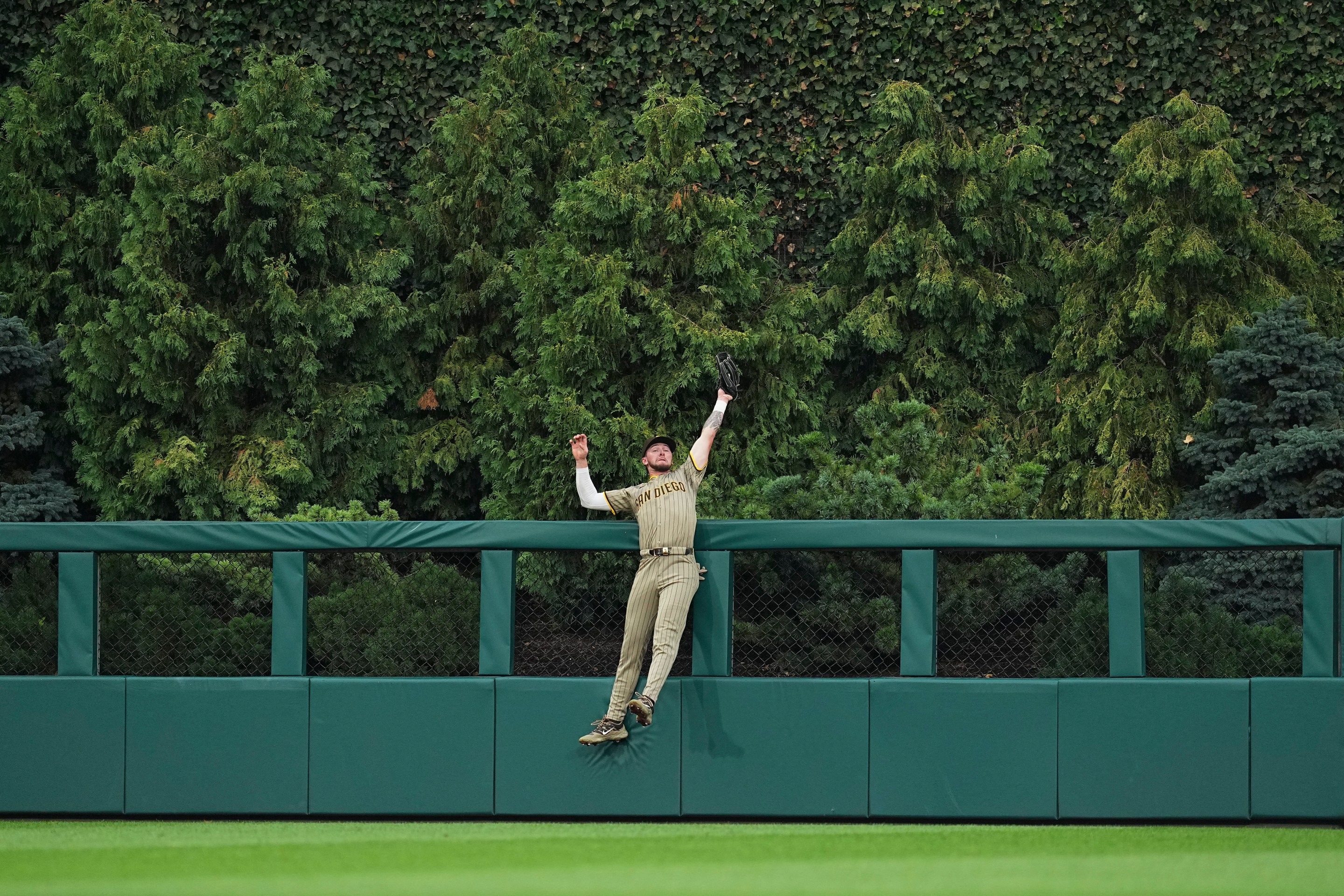NEW YORK CITY — The very premise of a flesh-and-blood Jai Paul concert filled me with questions. His music wants to reach you through several stories of floorboards, or at the bottom of an overfull swimming pool—are we even allowed to stand in the room where it is being made? What would it look like to "perform" a song like "Jasmine" live? Generally what can one expect this dude to be doing with his hands onstage? Will they be bringing out the ray guns? How does any artist take tracks that were fetishized for a full decade as unfinished doodles and expand them into a full band's set of full-length songs? How can this tender-hearted hermit stand up there and bear the brunt of New York's hype-cooled-into-nostalgia-boiled-back-into-hype?
And will he even show? Jai did show: his bob mottled with blond, wraparound shades, a grey-and-ochre sweatshirt that would suit the med bay in a lunar base. He paced the stage slowly, and frequently clasped his hands together in gratitude, like a benevolent brown uncle escaped from some drippier future. And he went a long way towards answering the above questions, even figuring out some of their answers in real time over his 14-song set, with visible pleasure. His bashfulness was understandable, and arguably part of the sell. Tuesday night's performance at the Knockdown Center was Paul's third live show ever. It was announced just last week, on the back of two weekends at Coachella, which were, somehow, his first- and second-ever live shows. This time, a charmed audience gathered in a charmless hangar, with acoustics so finicky that standing in the wrong spot could leave you believing in Havana syndrome. It would have been easier to imagine this set in its sister venue, BASEMENT, which is about as disjointed and subterranean as Paul's music, though it couldn't handle the crowd he attracted.
But being picky about the venue of a Jai Paul show is like complaining about the wrapping paper on a gift you've been waiting for most of your adult life. See the words "Jai Paul show" and do not sweat the logistics. That such an event would occur at all, and occur in our city, was intrigue enough. As a result, the entire critical apparatus of this crowd was dismantled for these 45 minutes. An atmosphere this supportive is typically reserved for a 4-year-old playing her first soccer game, or perhaps an elder taking his first steps after a double-hip replacement. It was more wholesome than the base sycophancy I've seen at some shows, where blind standom exonerates a half-assed performance. Jai was trying hard at something new; the crowd was nurturing him. Nowhere else will you feel a mass of several hundred New Yorkers channel such unadulterated "You got this, bud!" Especially when they've paid good money to stand there. Whenever Jai pushed his inexpert falsetto towards its most ambitious reaches, the crowd howled its simultaneous approval. The opening notes of every song—there aren't that many songs yet to remember—had the crowd squealing in instant recognition. The merch line had taken a full hour to traverse, and I did not spy a single frown in it.
Of course this crowd could never take this performance for granted. Nobody wanted him go back into his shell. Jai Paul lit up the the world with his first demo at the start of the last decade, only to see the rough drafts for his debut album leaked in a (still unsolved) betrayal. He left music for years. Eventually he would reclaim those leaks, by then a kind of sacred text, as his own. He'd drop a new track and disappear again for years. I never expected to see him in real life. I always assumed his music would live on in my headphones, because, to me, it is the epitome of headphones music: fastidiously produced, panning mischievously from one side of the skull to the other, an exercise in artful disorientation.
It is harder to be disoriented when you are standing on your own two feet and watching the music get made. It is a challenging puzzle to reverse-engineer a live gig from music that seems intent on obscuring the identity of any of the instruments that produce it. There was Jai, with the mic in his hands. Behind him was brother AK Paul, in a long trench coat, noodling on a black guitar and providing backing vocals; they were joined by collaborator Fabiana Palladino on the synths, plus a bassist and drummer. The band was tight. Still, not every one of Jai's digital collages survived the transition to IRL. As a producer, his genius is constantly rearranging sounds in the mix, submerging and retrieving each element as needed, using the power of suggestion here, wrong-footing you there with a zap or a screech or a fleeting silence. His own vocals are often just a bit of filigree. So it was surreal to see him at the center of this or any stage with a mic, as if that were the thing that made his name.
As a general rule, the more a given song relied on that cultivated sense of distance, the harder it was to port over to the inevitable immediacy of live music. "Jasmine" was not the banger the crowd might have expected, its iconic shudders resisting translation. "All Night" came out similarly muddled, though the undulating ocean life projected onstage was exactly what I've seen in my head all along. "BTSTU," fondly introduced by Jai as "an old one," didn't wobble quite as much as I knew it should. Oddly, I found myself questioning Jai's contributions to his own ingenious inventions: Should the vocals have been clearer here, or ghostlier there, or just prerecorded? In the rougher parts of this set, I could sense my body registering any misalignment between the studio version and the live version as a vague restlessness in my legs.
That was counterbalanced by those moments where the band veered successfully from source material into fresh terrain. Because that source material is so scarce, these live arrangements were opportunities to reimagine these songs, slapping meat onto those skeletons. "Chix," just the barest sketch in its studio form, under a minute long, was actualized as a crooner's tune with verse-chorus structure. The guitar tone and horn sounds on "Zion Wolf Theme" skewed almost into ska, blindsiding me in a way I liked. As the set progressed, and the crowd locked into these new rhythms, confidence seeped into the band and its implausible frontman. "Genevieve" unfolded into an outright singalong. Our curiosity was always there, and by that point, our focus had risen to match it. There may yet be a captivating live artist in Jai Paul; these were his baby steps. The task set out for him—mastery on the third try, playing new versions of old songs long encoded in the mind of every concertgoer—was impossible.
Sometimes a song will do exactly what it said on the box, even if it has been sitting in the box for 10 years. "Str8 Outta Mumbai" hit the way it's been hitting since 2013. His music felt ahead of everything then, and I detect no dust on it now, either. Not many songs since have made me feel the way those did, which is either a testament to this artist or to being 19 years old. Jai hit all his notes, or got near enough—hard to tell sometimes, smothered by the crowd's ecstatic release. We all knew we'd jump up and down at that last bit, and we did, winding down this unlikely gig with its righteous closer. My favorite moment, though, came at the outset, right before that opening tabla line rattled our bones: Jai permitted himself a big grin, apparently happy to be there, at last.

